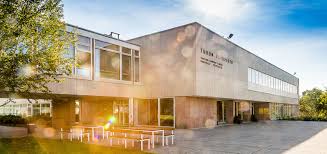After completion of the master’s degree, you will be able to work as an expert in European languages, language diversity and cultures for industry and for local, national and international bodies. You will also be qualified to conduct high-profile research in language and culturally related topics across Europe or to proceed with a PhD programme.
The master’s degree in European Languages, Cultures and Societies in Contact provides you with expertise in multilingual and multicultural societies in interaction.
It also offers the following:
Specialised theoretical, methodological and practical training in the field of linguistic and cultural contact within a European framework
Communication skills in multilingual and multicultural environments, speaking to specialist and non-specialist audiences
An understanding of complex linguistic and cultural phenomena that are relevant in several career paths: multicultural business advising, multilingual project management, diplomacy, transcultural communication, media and transcultural communication and so forth
A double or triple degree of master, depending on the number of universities where you have conducted studies (minimum 30 ECTS)
By developing a sensitivity to linguistic and cultural diversity, you will gain comprehensive expertise in modern societies. In-depth knowledge of the European linguistic and cultural landscape, combined with overall intercultural competences, will enhance your possibilities for a future career in the European and international labour markets. You will not only learn communication skills for multilingual and multicultural environments, but you will be a language professional in any communication-related work.
At the University of Turku, your main course path consists of studies in either the French and/or the German department. This means that a major part of your courses will be either in French or in German. The master’s degree will provide you with advanced research methods in these academic fields from the perspective of linguistic and cultural diversity.
There is also the possibility of including courses on Digital Language Studies or Finnish Culture Studies in your studies, which may add value to your professional profile in the future. Depending on where your interests lie, you can plan your courses to suit your career wishes.
Completing the degree will give you eligibility for doctoral studies according to your major if you wish to pursue a scientific career.
The master’s degree is international by definition. It is included in the EC2U European Alliance that comprises the following universities:
University of Salamanca (Spain)
University of Coimbra (Portugal)
University of Iasi (Romania)
University of Jena (Germany)
University of Poitiers (France)
University of Pavia (Italy)
University of Turku (Finland)
You will conduct studies in at least two of these universities but may well choose a third university. If you apply to the University of Turku as your home university, you also agree to spend two or three semesters at one of the universities mentioned above. Note that you can spend no more than two semesters at one university.


